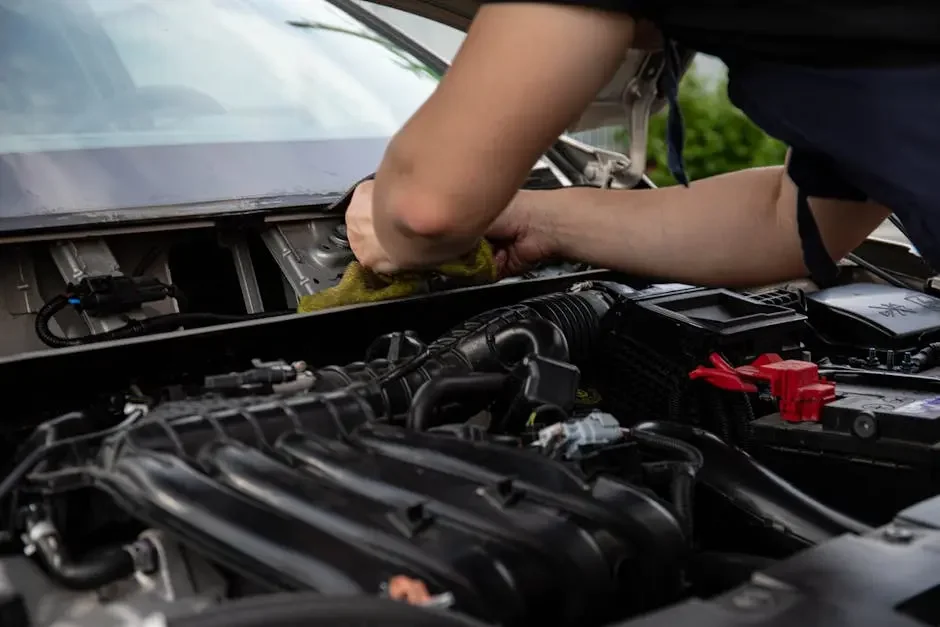Engine Rebuild Near Me: Unveiling the Secrets to Engine Longevity
Welcome to our guide on engine longevity! We'll dive into the essentials of keeping your vehicle's engine running smoothly and efficiently. Whether you're looking for 'engine rebuild near me' services or just want to understand how to care for your engine, this blog is for you.
Understanding Engine Basics
To keep your engine in prime condition, it's essential to understand how it works. This section will cover the fundamental parts of an engine and their functions, making it easier to recognize when something goes wrong.
An engine is much more than just a collection of components; it’s a finely-tuned machine that requires harmony to function. At the heart of the engine are the cylinders, which play a crucial role in the combustion process. When fuel mixes with air inside these cylinders and ignites, it creates the power needed to move your vehicle. But what happens if one of these cylinders falters? Understanding the symptoms of a misfiring cylinder or a failing piston can be vital for timely repairs.
Additionally, you should also be familiar with the role of the camshaft and crankshaft, which help regulate the timing of the engine’s operations. If you've ever experienced a rough idle or a decrease in power, it could be a signal that these components aren’t working in unison. By grasping these engine basics, you'll be better prepared to tackle any issues that arise and have informed discussions with mechanics.
Signs Your Engine Needs Attention
Knowing the signs that indicate your engine might need a rebuild is crucial. This section highlights common warning signs to look for, including unusual noises, performance drops, and oil leaks.
One of the first indicators that your engine may need attention is the appearance of strange sounds. If you start hearing knocking or ticking noises, it could indicate issues with engine components such as bearings or valves. These sounds often result from wear and may worsen over time if not addressed promptly. Another sign is a sudden drop in performance; if your car feels sluggish or struggles to accelerate, it’s time to investigate further.
Oil leaks are a clear red flag that should never be ignored. If you find dark puddles under your vehicle, it could indicate a compromised gasket or seal. Regularly checking your oil levels can also save you from further damage. If you notice that your levels drop significantly between oil changes, it might be time for a more in-depth inspection. By keeping an ear out for noises and an eye on fluid levels, you can catch problems before they escalate.
The Benefits of an Engine Rebuild
An engine rebuild can breathe new life into your vehicle. Learn about the advantages of rebuilding, including improved performance, reliability, and fuel efficiency, and why it's a worthwhile investment.
Perhaps the most compelling reason for considering an engine rebuild is the enhanced performance it brings. Over time, even the most reliable engines can experience a decline in power and efficiency. A rebuild allows for the replacement of worn-out components, improving your vehicle's responsiveness and power output. You might find your vehicle handling better, especially if you drive in conditions that require more from your engine.
In addition to performance, rebuilding your engine can significantly improve fuel efficiency. A new set of pistons, valves, or injectors can lead to a smoother operation. As the engine works more efficiently, you’ll notice longer intervals between fill-ups, which is not only good for your wallet but also for reducing environmental impact. Additionally, a well-functioning engine tends to produce fewer emissions, making this choice an environmentally-friendly one.
Finding 'Engine Rebuild Near Me': What to Look For
When searching for a reliable engine rebuild service near you, there are several factors to consider. This section outlines key elements such as reputation, credentials, and customer reviews that can guide your decision.
Finding the right engine rebuild service can feel overwhelming, but starting with reputation is key. Check online reviews and ask for recommendations from friends or family. A reputable company will often have satisfied customers who can vouch for their service. Don't hesitate to look at before and after photos of previous rebuilds, which many shops proudly showcase to demonstrate their skills.
Credentials are another critical aspect of your search. It’s important to verify that the mechanics have the necessary training and certifications. A certified technician is more likely to provide a quality rebuild than someone who lacks formal training. Furthermore, inquire about warranties; a solid warranty on parts and labor will give you peace of mind knowing your investment is protected.
DIY Maintenance Tips for Engine Longevity
You don't have to be a mechanic to care for your engine! Here, we share simple maintenance tips that you can implement to extend the life of your engine, from regular oil changes to checking fluid levels.
Regular oil changes are one of the most effective ways to maintain your engine. The oil serves as a lubricant, helping to reduce friction between moving parts. Over time, oil can become contaminated with dirt and debris, reducing its effectiveness. By changing the oil every 3,000 to 5,000 miles, you can keep your engine running smoothly and efficiently.
Additionally, don’t overlook the power of fluid checks. Keeping an eye on coolant and transmission fluid levels helps avoid overheating and transmission issues, respectively. Simple tasks like checking these fluids can make a significant difference in engine longevity. Remember, even small maintenance efforts can save you from costly repairs down the line.
When to Consult a Professional
While DIY maintenance is helpful, certain issues require a professional touch. This section discusses when it's best to seek expert help to ensure your engine gets the care it needs.
If you encounter persistent warning lights on your dashboard, it's time to consult a professional. Ignoring these signals can lead to dangerous situations and costly repairs later on. Mechanics have specialized tools and diagnostic equipment that can pinpoint issues that may not be immediately visible. For example, if you notice recurring engine misfires, a professional mechanic can conduct tests that reveal the root cause.
Furthermore, if you find yourself unsure about the severity of an issue, it's best to err on the side of caution. Seeking advice from a qualified mechanic can provide reassurance and clarity. Whether you're facing strange noises, diminished performance, or any other signs of trouble, a professional assessment can help identify the problem before it escalates into an expensive repair. Don’t hesitate to reach out; after all, when it comes to your engine, prevention is always better than cure.
Final Thoughts on Engine Care
Maintaining engine longevity is not just about repairs; it's about understanding your vehicle and making informed choices. With the right knowledge and proactive care, you can ensure your engine runs well for years to come.

